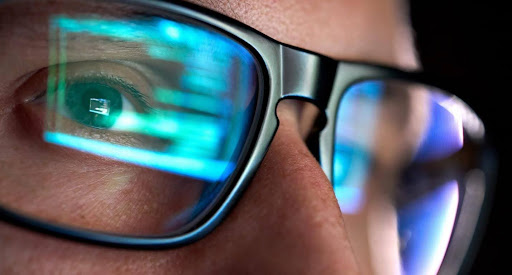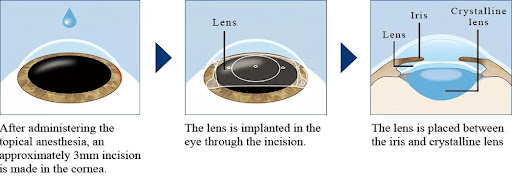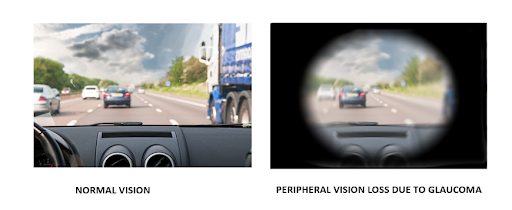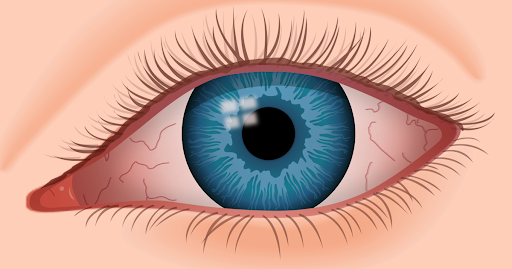In today’s digital age filled with screens and constant visual stimulation, taking care of our eye health has never been more important. Our eyes—just like any other part of our body—thrive when we provide them with a balanced and nutritious diet.
In this comprehensive guide, you will learn a lot about various foods that are crucial for promoting good eye health. Eyeonce Eye Clinic, along with their expert eye doctors, Dr. Paik Dong Won and Dr. Jung Sae Rom, will share their professional insights and offer valuable advice that combines expert knowledge with practical tips for a vision-friendly lifestyle.
Impact of Blue Lights on Eyes
Blue light can affect the eyes in several ways, primarily due to its short wavelength and increased energy. Here is a breakdown of how blue light can impact eye health.
Digital Eye Strain
Prolonged exposure to digital screens, which emit significant amounts of blue light, can lead to digital eye strain. This condition is characterized by symptoms such as dry eyes, eye fatigue, blurred vision, and headaches. The eyes may feel tired and irritated after extended periods of screen use.
Sleep Disruption
Blue light—especially from electronic devices—can suppress the production of melatonin, a hormone responsible for regulating sleep-wake cycles. Exposure to blue light in the evening, such as before bedtime, may disrupt sleep patterns, making it more challenging to fall asleep and achieve restful sleep.
Macular Degeneration Concerns
There is ongoing research into the potential long-term effects of blue light exposure on the macular, a part of the retina. Some studies suggest a connection between prolonged exposure to high-energy visible light and an increased risk of macular degeneration, a serious eye condition that can lead to vision loss over time.
Disruption of Circadian Rhythm
Exposure to blue light during the evening can interfere with the body’s natural circadian rhythm. This disruption may not only affect sleep but also impact overall well-being, mood, and cognitive functions.
Potential Retinal Damage
Some studies suggest prolonged exposure to high levels of blue light might contribute to retinal damage. This highlights the importance of understanding and managing blue light exposure, especially in the context of increasing screen time.
It is essential to incorporate proactive measures to mitigate the potential effects of blue light on eye health. It is also imperative to have regular comprehensive eye examinations from a trusted eye care professional such as those from Eyeonce Eye Clinic.
Blue Light Protection
Protecting your eyes from the potentially harmful effects of blue light exposure is crucial, especially in our screen-dominated era. Here are various strategies and measures to safeguard your eyes:
- Blue Light Filters – Install blue light filters on digital devices. These filters adjust the color temperature of the screen, reducing the amount of blue light emitted without compromising overall visibility.
- Screen Protectors – Consider using screen protectors that have built-in blue light-blocking features. These physical filters can be applied directly to your device’s screen, providing an additional layer of protection.
- Blue light Blocking Glasses – Invest in blue light-blocking glasses. These specialized eyeglasses are designed to filter out or block a significant portion of blue light, reducing eye strain and fatigue during extended screen use.
- Adjust Screen Settings – Most devices allow you to adjust screen settings manually. Lower the brightness and warmth of the display to minimize blue light emission, especially during the evening when exposure can disrupt sleep patterns.
- Use Night Mode – Many devices come with a “Night Mode” or “Night Shift” feature that reduces the blue light emitted during nighttime hours. Activate this mode in the evening to create a warmer and less stimulating screen environment.
- Take Regular Screen Breaks – Follow the 20-20-20 rule: every 20 minutes, look at something 20 feet away for at least 20 seconds. This simple practice helps reduce eye strain and gives your eyes a brief break from continuous screen exposure.
- Limit Screen Time Before Bed – Minimize exposure to screens at least an hour before bedtime. This practice can mitigate the potential disruption of melatonin production, promoting better sleep quality.
- Create a Screen-Free Bedtime Routine – Establish a relaxing bedtime routine that does not involve screen-based activities. Opt for activities such as reading a physical book or practicing relaxation techniques to prepare your mind and eyes for sleep.
- Optimize Lighting in Your Environment – Ensure proper lighting in your workspace to reduce screen glare. Position light sources away from your direct line of sight and use ambient lighting to create a comfortable visual environment.
- Encourage Outdoor Activities – Balance screen time with outdoor activities. Exposure to natural light not only benefits overall well-being but also helps regulate circadian rhythms, contributing to better sleep patterns.
Incorporating these strategies into your daily routine and seeing Dr. Paik Dong Won and Jung Sae Rom of Eyeonce Eye Clinic for further information can proactively protect your eyes from the potential negative effects of blue light exposure and promote long-term eye health.
Symptoms of Eyes Affected by Blue Light
Excessive exposure to blue light, especially from digital screens, can lead to a range of symptoms indicating that your eyes may be experiencing the effects of blue light.
- Dry Eyes
- Eye Fatigue
- Blurred Vision
- Headaches
- Sleep Disruption
- Increased Sensitivity to Light
- Neck and Shoulder Pain
- Difficulty Focusing
- Changes in Color Perception
- General Eye Discomfort
If symptoms persist or worsen, it is advisable to consult with an eye care professional for a comprehensive eye examination.
Why choose Eyeonce Eye Clinic Gangnam for blue light management?
Utmost Patient Care
Our eye care professionals and staff ensure to give you your money’s worth. We guarantee you receive the best medication possible and assure you that you are guided and understood, making you feel comfortable and confident at every step.
Comprehensive Consultation
Eyeonce Eye Clinic offers comprehensive eye examinations to evaluate your condition and determine the best eye strain treatment. Our ophthalmologists take their time to cater to your questions and address your concerns, ensuring you make an informed decision about our vision correction options.
Expert Eye Doctors
Our ophthalmologists, Head Director Dr. Paik Dong Won and Medical Director Dr. Jung Sae Rom, are highly knowledgeable and adept in treating eye strain. They always use the latest techniques and technologies to ensure optimal results.
Frequently Asked Questions (FAQs)
Yes. Children are susceptible. Limit their screen time, encourage outdoor activities, and consider protective eyewear.
While evidence is inconclusive, prolonged exposure may contribute to retinal damage. Prioritize eye health with regular breaks and protective measures.
Follow the 20-20-20 rule: every 20 minutes, look at something 20 feet away for at least 20 seconds. Adjust screen brightness and blink regularly to combat dry eyes.
Conclusion
Understanding the intricate relationship between blue light and eye health empowers us to make informed choices. From digital eye strain to long-term concerns like macular degeneration, our awareness guides us toward proactive measures. For more information, visit Eyeonce Eye Clinic for personalized consultations, expert guidance, and advanced solutions to safeguard your vision in the digital era!



